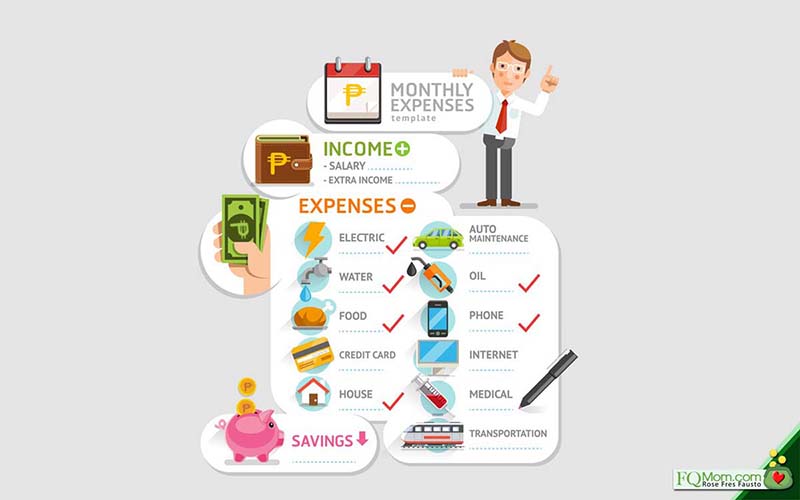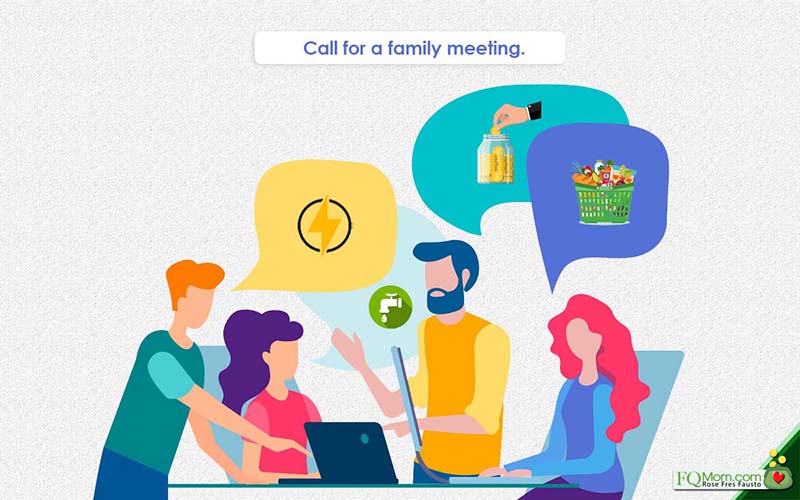Should adult children contribute to household expenses?


What do you think? For some families, it is clear that once you reach the age of reason, especially when you are already earning, you either move out or contribute to household expenses. But in most Pinoy families, it is not very clear and we normally resort to “pakiramdaman.”
For families who are hardly making both ends meet, the adult children normally take it upon themselves to contribute because it is a matter of having food on the table or none. But for those above this level, it is quite unclear. The pusong mamon Pinoy parent will not ask for it directly and will want to still play the role of the provider.
Unfortunately, the pandemic has caused a lot of parents to lose jobs or experience reduced earnings. This is coupled with the children coming back home and doing work from home. While it may have been a great family reunion at the start, it may be a financial drain to some parents by now as we have been in this situation for over a year.
So, what do you do when you want your children to contribute to family expenses either due to financial needs or even just to make them feel what “adulting” is really like? Here are some steps that will help you talk about the elephant in the room.
1. Compute household income and expenses.

It would be great if you had been keeping tab of your income and expenses prior to COVID-19. This is a great starting point for parents who actually need help from their children but are just hesitant to say it.
2. Estimate the share of each adult child in the total expenses.
If your children used to live on their own, it will be great to have a comparison of their actual total expenses versus the share amount you computed. Include rent, food, electricity, water, wifi, helpers’ salaries, dues, etc. Decide whether to do a socialized sharing (i.e. the one who earns more contributes more) based on what you believe is best for your situation. The share of each child should not just be limited to monetary contribution but should also extend to household chores.
3. Call for a family meeting to discuss this matter.

Be loving yet candid in your manner of speaking. Make sure that husband and wife are united in their stand before the meeting. If you can, it would be great to have the computed amounts together with images that can make your presentation great. Put it on powerpoint or keynote if you want. Include your retirement dreams so that this important item is not missed in the discussion. Asking your children to help out is your way of protecting your retirement nest egg. Impress upon them that you’re also doing this so that you will not grow old and dependent on them for your financial needs later on.
4. Expect some resistance but respond with the data that you prepared.
If your children feel that you are being stingy on them, hear them out. Find out where it’s coming from, and discuss your respective opinions and feelings in a healthy way.
5. Overcome guilt.
As mentioned earlier, parents will always want to take the role of the provider and having this conversation will most likely make them feel guilty. If you actually need your children to help out, channel that guilt to the fact that you are actually depriving them of proper training for independence and at the same time, risking your own welfare. That is something to be more guilty about.
6. If you feel that your children are also in tight financial condition, agree on an expiry date on this freeloader arrangement.
Remember the financial umbilical cord I have discussed a few times? (To read, click links 1, 2, 3) The umbilical cord is the connection between the fetus and the mother’s placenta. The cord enables the supply of oxygenated and nutrient-rich blood from the placenta to the fetus. Conversely, the fetal heart pumps deoxygenated, nutrient-depleted blood trough the umbilical cord back to the placenta. Nature provides an expiry date for this arrangement as the placenta is expelled after the baby is delivered; otherwise, the mother will be poisoned. It’s the same thing for the financial umbilical cord. It has to be cut at a certain time.
7. When your children agree to contribute and start doing so, be grateful and show pride in them.
Remind them to still do their own saving and investing for their own future.
It may not be an easy undertaking to follow the above, but you are better off discussing them to understand each other’s sentiments on the matter, rather than resorting to “pakiramdaman,” expecting them to do what you have been hoping for them to do. In the end, nothing beats healthy family conversations about money.
Cheers to a healthy family FQ!
ANNOUNCEMENTS
1. Please join me tomorrow live on Kumu or FB Page with my son Anton to discuss "Money Dance"

2. To learn more about your money behavior, get your copy of FQ Book 2. Get copies for your loved ones too. The principles you will learn from here are not only applicable in your financial life but all the other important aspects of your life. https://fqmom.com/bookstore/

To know more about FQ Book 2, watch this short video.
3. How good are you with money? Do you want to know your FQ score? Take the FQ test and get hold of your finances now. Scan the QR code or click the link http://fqmom.com/dev-fqtest/app/#/questionnaire.




















